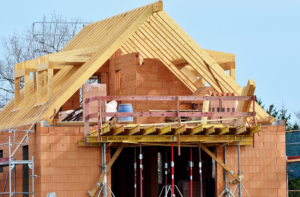Radon-Rid, LLC Discusses Why Contractors Should Get Radon Testing For Homes
 As a contractor, you have to be aware of protecting yourself and, of course, the clients you are working with. Countless things could cause issues when you are building a new home or repairing an older one. Radon has been a well-documented issue in Pennsylvania for a number of years now, and radon testing the homes you build or repair could prove invaluable.
As a contractor, you have to be aware of protecting yourself and, of course, the clients you are working with. Countless things could cause issues when you are building a new home or repairing an older one. Radon has been a well-documented issue in Pennsylvania for a number of years now, and radon testing the homes you build or repair could prove invaluable.
While building and/or repairing a home is a big expense, safety should always be everyone’s top priority. Testing for and preventing the occurrence of radon in homes is something that needs to be taken seriously before radon can even start causing issues.
As a contractor, why do you need to be aware of radon or why testing is so important?
What Is Radon?
Many consumers are still unaware of exactly what this silent killer is. Radon is a radioactive gas that is released naturally, underground, when trace amounts of uranium in the ground break down. Radon gas is the main source of all of our exposure to radiation. The particles are so small that they get into the air, and then into your lungs, and are directly linked to causing lung cancer. Radon gas becomes a problem in confined areas, such as a beautiful newly built home.
Why Do Radon Testing?
Radon is a silent, yet very deadly particle that can sneak up on you without you knowing as the gas is undetectable by our senses. Testing for radon is of the utmost importance to keep residents safe in their own homes. Though a contractor will typically have no liability if a home is found to have radon at a later time, finding a professional and certified radon testing and remediation company is probably a worthwhile task. If you partner with a company you can count on, you can offer your clients an additional benefit to working with you.
By offering the service of testing for radon as part of your building contracts, you send a message to your clients that you care about their well-being and about offering a quality product to them. In addition, the client will have more confidence in purchasing from you, as well as recommending you to others because they will have a sense that you are conscientious and responsible.
Consider Specialized Building Materials And Techniques
In recent years, more great materials have been developed to help protect against radon particles and prevent them from entering a home. As the old saying goes, prevention is better than cure, so, as a contractor, consider using these special materials during construction. If you are doing a new build, the cost of doing so will be negligible, and no special rare new techniques are needed. To futureproof a building, contractors can also install passive radon systems, with vent pipes that can be used in the future to convert a system to an active radon mitigation system.
The EPA notes that Radon Resistant New Construction (RRNC) is part of the policy/labelling of three programs. These programs are:
Safety Always Comes First
For the benefit of everyone involved and to provide your clients with the best possible service, make every effort to rid the homes you build and repair of radon. By carrying out radon-safe best practices as a contractor, you can be sure that you are giving your clients the best possible service. Contact Radon-Rid, LLC for information about radon testing and remediation.
Related Posts
Why Are More People Testing for Radon in 2020?
Why Should I Hire a Professional Radon Testing and Remediation Company?
Is Radon Testing Necessary When Buying A Home?
We Want to Help
"(required)" indicates required fields
Categories
- Blog (48)
- Environmental Pollution (2)
- Family Health (9)
- In the News (10)
- Lung Cancer (5)
- Radon Remediation (10)
- Radon Testing (24)
Radon – The Silent Killer
Radon In Your Home
- Learn More About Radon Levels in Your County
- Take a few minutes to browse our Get To Know Radon Online Presentation.
- When you are finished, be sure to tell a loved one about our testing programs offered in Berks, Chester, Delaware, Lancaster, Montgomery & Philadelphia Counties.